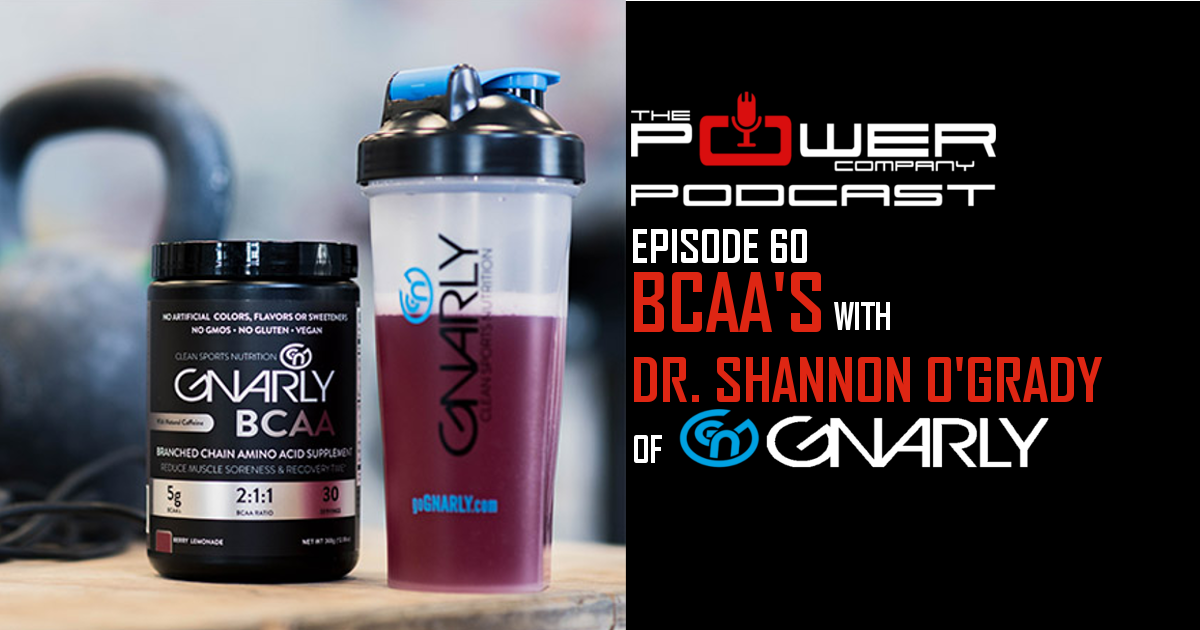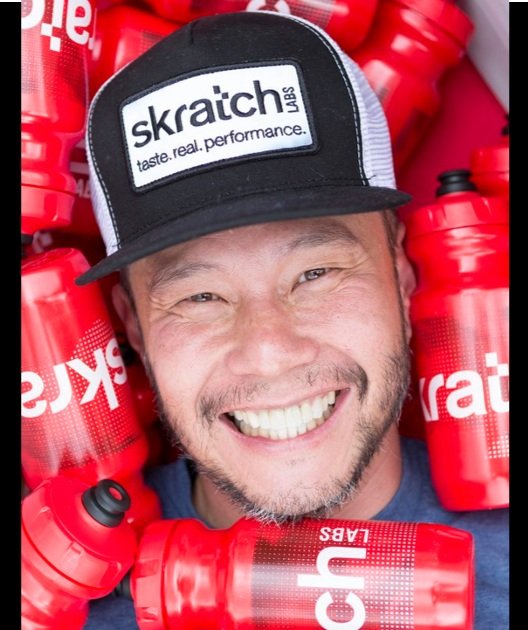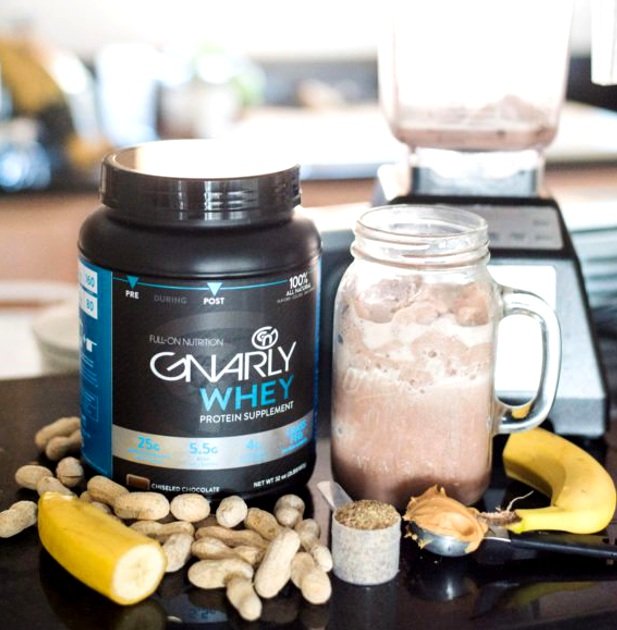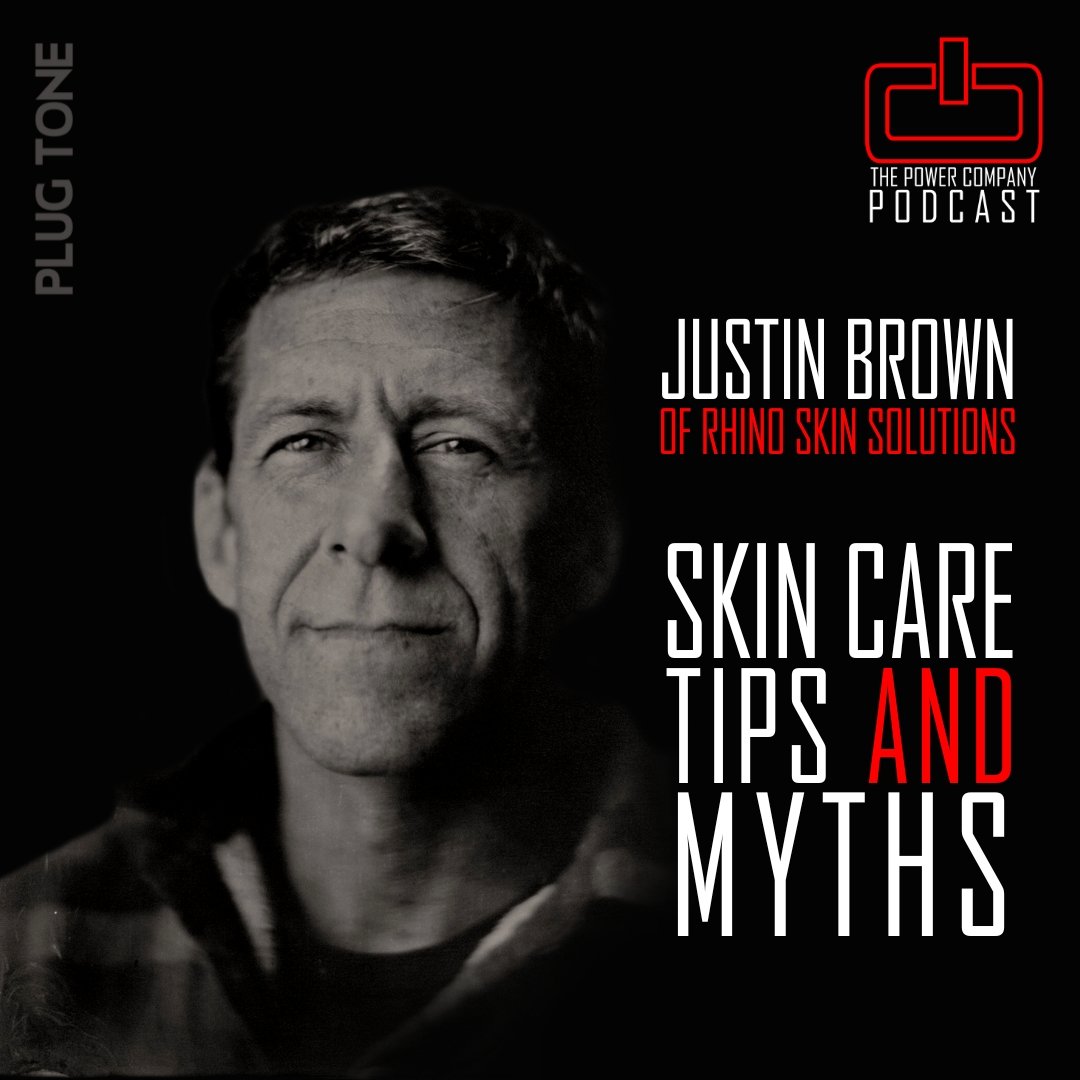Episode 60: BCAA's with Dr. Shannon O'Grady of Gnarly Nutrition
Some more nerdy talk for all of you training nerds out there! This time we go deep into the world of Branched Chain Amino Acids (BCAA's) with Dr. Shannon O'Grady, Ph.D., Director of Product at Gnarly Nutrition.
BCAA's are more than just the new fad supplement. We talk about what they are, why we need them, how to use them, and more.
This is the first in a three part series with Dr. Shannon and Gnarly Nutrition. We'll also be discussing all things protein and taking a look at their entire line of products to see what we can benefit from as climbers.
Get 20% off at www.gognarly.com using the code POWERUP20.
Like what you hear? Subscribe to The Power Company Podcast on ITunes, Google Play, or Stitcher Radio, and leave a rating and review!
FULL EPISODE TRANSCRIPT:
Kris Hampton 00:32
What's up everybody? I'm your host Kris Hampton. Welcome to Episode 60 of The Power Company Podcast brought to you by Powercompanyclimbing.com. Man, I told you guys this in the last episode, but I am worked. I just drove across the country, moved into a new house here in Lander where we are going to build a gym, which I'm stoked about and I'm about to fly back to Cincinnati. Rocktoberfest is coming up. Hopefully I see all you guys there and if you stick around afterward, and you're in the Red on October 14, at 8pm, specifically, at Land of the Arches, we're going to be doing a live Board Meeting and it's looking like the topic is going to shake out to be "Things that you need to focus on, and pay attention to while building your own training plans". I think there's a lot of misconceptions out there. I think people just get in too deep, too....you know, get into the weeds, too many details, so we're gonna talk more about that. And you guys will hear that here too, even if you can't make it to the live showing, which I hope you do. And shortly after that, Salt Lake City, October 27 to 29th, I will be coaching at the Climb Strong Performance Coaching Seminar. A few spots open for that I believe, and you can sign up at climbstrong.com. And then I'll be in Bozeman, meeting all the folks over at Spire, November 14 through the 17th. Nate will be there with me for that one. We're going to be doing a bunch of workshops, working with the team at Spire and we've got a bunch of private coaching slots open if you're interested. I filled up a couple of mine. Nate has a few and I have one or two left, so if you're interested in some private sessions while we're in Bozeman, hit us up on the website Powercompanyclimbing.com. Click that contact tab, shoot me a message. I'm going to jump into this thing instead of being long winded today. And today is Part 1 of 3 parts that I recorded this summer at Outdoor Retailer in Salt Lake City. And it's with Dr. Shannon O'Grady, PhD. She's the Director of Product at at Gnarly Nutrition and when Gnarly first contacted me they just wanted to wanted to talk about BCAAs and protein and they wanted to educate people on what these products do and I really had to talk them into spraying about their own product. They didn't want to seem like they were just trying to sell you on their product. But I fully believe that if you believe in your product, you should be spraying about it. I mean, that's what I do. I think if you're going to train, you should train with us. So so I talked them into into that a little bit. So we're doing three parts, first part on BCAAs, second part on protein, third part is about their products and what you know what we can use as climbers and how it's going to benefit us. And I think that's really important to know. And they did send us some product to try out. All of the coaches, all four of us, tried out Gnarly products, and we all had a really great, great results from them. I really enjoyed it and I'm actually still using quite a few of them now. And I was not a supplement person at all to begin with, so I think that says something for sure. And I know it walks a thin line here when I'm trying, when I'm talking about, you know, a specific company and their products because I don't have sponsors on this podcast and that's something that I'm proud of, that I can do this without sponsors. But I do think it's important for you guys to know what products are available out there and who's doing a good job with those products.
Kris Hampton 04:30
So I think it's part of my job to give that to you guys. So that's why I'm doing it. And I've got no other affiliation with Gnarly. It's not a sponsorship deal, nothing like that. They just sent me product to try and and they wanted to educate you guys, so I appreciate that. And stick around after the podcast, we'll have a 20% off code for all of the Gnarly products that you can find at gognarly.com and later on in this series we're also going to hear from some athletes who use their products including Carrie Cooper, Daniel Woods, Joe Kinder, Alex Honnold. I talked to all of those guys at at Outdoor Retailer as well. So, and just about how they use their gnarly products and I think that's important to know. So, I'm gonna jump into this conversation with Shannon O'Grady, Director of Product at Gnarly about BCAAs and you know, if you've been wondering how to say it, I did when I first saw it, it is BCAA. But the great folks at Gnarly, call it "BA-KAH!"
Dr. Shannon O'Grady 05:41
We like to characterize our company as more of a nutrition company and I think if you can meet all of your nutritional needs with whole foods, then you should go for it.
Dr. Shannon O'Grady 06:14
I don't know. I didn't really think there was any reason it would help.
Kris Hampton 06:18
Yep.
Dr. Shannon O'Grady 06:18
But was willing to give give it a try after trying so many things that hadn't worked.
Kris Hampton 06:22
Yeah, you know, I think that's a good, good way to segue into what we're talking about here, actually, because I'm, I'm not a supplement person at all. I've never, I've tried them a few times when I was in the bodybuilding out of high school, and I tried creatine for a while
Dr. Shannon O'Grady 06:38
Yep.
Kris Hampton 06:38
But I also found rock climbing around the same time and the weight gain.... I wasn't too stoked on and I was you know, very, didn't really know how to use it, so it was really elementary. So I appreciate people like you who take a scientific approach and are able to look at the science behind something and then just hand it to me, you know, that's, that's much easier for me than trying to figure it all out for myself. And I wasn't, I didn't know a whole lot about BCAAs, branched chain amino acids, before we, before you sent them over to me and, and I tried them and I had heard that people were having good results. It's kind of, you know, trending, so to speak. And, and I'm usually really skeptical of things that are trending
Dr. Shannon O'Grady 07:31
As you should be
Kris Hampton 07:32
Just it's just my nature and but I tried them and, and I tried them for a few weeks, pre and during workouts and then for a couple of weeks, I stopped using them and didn't do any pre or during other than water and there was a pretty definite difference in my recovery and how I felt during and after the workout. So I'm definitely a believer, but I want to know more about how it works, why it works.
Dr. Shannon O'Grady 08:07
Sure.
Kris Hampton 08:07
So let's talk a little bit about that.
Dr. Shannon O'Grady 08:08
Yeah, so let's start kind of just talking about what branched chain amino acids are. They're essential amino acids. There are nine essential amino acids that we need to get from our diet. The branched chain amino acids, leucine, isoleucine, and valine, are a little different from the majority of of amino acids in that as opposed to being broken down in the liver, almost totally, they are shunted to the skeletal muscle.
Kris Hampton 08:37
Gotcha.
Dr. Shannon O'Grady 08:38
So there's there was initially, I mean, there's always been the protein connection with recovery and the importance of taking protein. I think the next step is people were looking at the role essential amino acids played in, in recovery, both in terms of preventing muscle breakdown and promoting muscle synthesis, so two different pathways, both important to recovery.
Kris Hampton 08:59
And amino acids are just the basically the building blocks of protein
Dr. Shannon O'Grady 09:04
Totally. So amino acids can join together and make dipeptides, tripeptides. But then it's it's this chain of amino acids that is then folded into kind of a complex protein matrix that is dictated by what amino acids are in that train....chain. So the the interactions of side chains of those amino acids determine how the protein folds and how the protein folds really determines the function of the protein.
Kris Hampton 09:30
Gotcha.
Dr. Shannon O'Grady 09:32
So protein inherently contains amino acids and inherently contains branched chain amino acids.
Kris Hampton 09:38
Right, right.
Dr. Shannon O'Grady 09:39
So I think there was this connection with protein and recovery and the importance of protein and promoting muscle synthesis, people started looking at the role that essential versus non essential amino acids played, and then really isolated the significant impact of essential amino acids to the branched chain amino acids and primarily leucine. And so there's been a lot of studies showing that leucine both prevents muscle breakdown and promotes muscle synthesis. Isoleucine and valine as well. There's kind of a, you know, as there it often is, in science, when you have studies with conflicting results, a debate over whether it's just leucine, or it's the combination of the three.
Kris Hampton 10:27
Sure.
Dr. Shannon O'Grady 10:28
There are studies showing, showing both things. I think the majority of what I read is pretty convincing that all three have a greater impact than just taking leucine alone.
Kris Hampton 10:39
And are you I mean, you're not losing anything by taking all three, it's not giving you any negative effects, right?
Dr. Shannon O'Grady 10:46
No, not at all. I mean, if anything, I think some people may say, I mean, if you're if you're taking them in a supplemental form, branched chain amino acids are pretty bitter inherently and so potentially, you know, you could just be taking leucine, more of just leucine, as opposed to taking that same dose
Kris Hampton 11:05
Right
Dr. Shannon O'Grady 11:06
Having it be palatable, and taking all three.
Kris Hampton 11:09
Right.
Dr. Shannon O'Grady 11:10
But yeah, I just read a study yesterday showing that, that all three had a bigger impact, both in terms of protein synthesis, and also the reaction of insulin to the dosage of the branched chain amino acids, which is important for the muscle to take in glucose, it's important for recovery, it's important for initiating protein synthesis. So it's definitely definitely seems like it's the impact of all three branched chain amino acids. So so really, the role of those three in and I generally recommend people take them before or during, because that's when you see the breakdown of muscle occurring. And so you're, you're elevating the your plasma levels of branched chain amino acids when that breakdown is occurring, so during your training, during your climb, and then follow up with protein afterwards, because of that secondary impact on protein synthesis, so on muscle building.
Kris Hampton 12:12
Right
Dr. Shannon O'Grady 12:13
And and research has shown, you know, there haven't been, there's as as there really isn't cross science, a ton of studies specific to climbing.
Kris Hampton 12:22
Sure
Dr. Shannon O'Grady 12:23
There are a lot of studies with actions of the muscles that you use, you know, that reflect a benefit in climbing. And there's more research coming out now about the impact of branched chain amino acids, even in endurance events. So I think as more research is being done, you know, it's the benefit is just is really coming through.
Kris Hampton 12:45
Sure, sure. Is there a difference in its effect based on how you take it, if you take it in a, say, a capsule form versus a powder that's mixed into a drink?
Dr. Shannon O'Grady 13:00
That's a great question. I, I haven't seen anything that suggests that. You know, typically, I, you observe, you're taking it as a free form amino acid, as opposed to amino acids in a protein, you're going to get an elevation in plasma a lot quicker, a lot higher. So within 15 minutes of taking an oral dose of branched chain amino acids in solution, you start seeing branched chain amino acids in your blood elevate. Within 30 minutes, they peak, and then they stay elevated, I think it's for like, 90 plus minutes after that, that peaking at 30 minutes.
Kris Hampton 13:46
So does it happen faster because you don't have to digest it as if you were eating a protein source?
Dr. Shannon O'Grady 13:52
Exactly.
Kris Hampton 13:53
Gotcha.
Dr. Shannon O'Grady 13:53
Yeah. So back to the recommendation of taking it beforehand. One, depending on what you're doing, like sometimes having a great whole food source of protein or a protein shake, is totally feasible before you're going to work out. Sometimes it's not the best idea, but that totally depends on the person and totally depends on the workout. So you could have a protein source beforehand, get a nice source of branched chain amino acids, and then follow up with protein after as well, because of the ease of digestion of taking freeform amino acids, the almost immediate, you know, elevation in your blood levels, and because it's easier on your stomach.
Kris Hampton 14:35
Yeah.
Dr. Shannon O'Grady 14:37
That I think that's ideal, and then following up with, you know, good protein and carbohydrates of course afterwards.
Kris Hampton 14:42
Do you know how long it takes by any chance? If you're, you know, eating a protein source, how long does it take for those amino acids to start taking effect?
Dr. Shannon O'Grady 14:52
I don't know.
Kris Hampton 14:52
I'm just curious
Dr. Shannon O'Grady 14:53
Yeah, I don't know the answer that question.
Kris Hampton 14:55
But I mean, digestion takes quite a bit longer and you know, for climbers, for me specifically, I know that if I eat much of anything right before I climb, or, you know, within the 30 minutes before I climb, I just feel heavier.
Dr. Shannon O'Grady 15:13
Same.
Kris Hampton 15:13
You know, even if I'm not necessarily any heavier, I still feel it and that that feeling goes a long way, when you're trying something at your limit.
Dr. Shannon O'Grady 15:22
Yeah, I mean, I think the psychological and mental aspects of almost every, you know, fitness event is is like half of it.
Kris Hampton 15:32
Totally, totally. And if there's not really a, you know, that you know of, a difference between the capsule and the drink, I guess it really comes down to what the person likes, and what you know what they're able to.... I'm not sure exactly what the word I'm looking for is
Dr. Shannon O'Grady 15:51
Like the best dosage form for them
Kris Hampton 15:53
Yeah, some people like to just take a capsule. They feel like that's the, you know, that's some magic thing that's going to work for them better than drinking it.
Dr. Shannon O'Grady 16:03
Yeah, I mean, I will say like, as you said that a second time, I just thought about..... with putting anything into solution, you know, you, you have to think about how soluble it is and whether or not it goes into water fully. So in our branched chain amino acids, we use vegan branched chain amino acids. So branched chain amino acids are traditionally sourced from duck feathers.
Kris Hampton 16:32
Right.
Dr. Shannon O'Grady 16:33
You know, so, how you feel about that sourcing aside, it's super interesting, in that there's a difference in how vegan versus non-vegan BCAAs go into solution. So the the non-vegan BCAAs foam a ton.
Kris Hampton 16:51
So the duck feather BCAAs
Dr. Shannon O'Grady 16:52
The duck feather BCAAs foam a ton and if you actually taste that foam, it's bitter.
Kris Hampton 16:58
I'm sure
Dr. Shannon O'Grady 16:59
Because it it, it basically is the branched chain amino acids, I don't know exactly what that chemical reaction is, but the vegan BCAAs don't do that. And we I've had people that have switched over to ours and said, "Oh I never, I never really felt, you know, had felt the, the impact of BCAAs on recovery till I started using yours." And, you know, as much as possible, much as I'd like to, you know, say that we put some kind of secret ingredient in there that makes it more, you know, I really think that that the impact of using the vegan BCAAs, of them going into solution and and and of the consumer getting the higher dosage because of the increased solubility helps. I mean, BCAAs, there's definitely been enough studies showing that, you know, five grams, kind of in the five gram to eight gram range is really where you see the impact of the free forms on prevention of muscle breakdown and promotion of protein synthesis, so
Kris Hampton 18:04
I think the solubility is interesting. I hadn't really thought about it, but I'm definitely someone who, when I've tried protein powders and things like that in the past, if they don't mix well, I just don't do it.
Dr. Shannon O'Grady 18:17
Right
Kris Hampton 18:18
You know, I just, I don't like it, I can't force myself and I'm not someone who will force something just because I've heard that it's good for me. If I don't like it, I just don't do it. And using the Gnarly BCAAs in particular, something that I found that was sort of a side benefit for me, is that I do tend to forget to drink water while I'm exercising and it was really helpful doing this sort of, you know, amateur self study of, of using these BCAAs because they were a little bitter, so I would add more water and then I found that I was drinking, you know, two, three times as much water during a workout because I was using these BCAAs.
Dr. Shannon O'Grady 19:11
Right.
Kris Hampton 19:12
And I assume there's no reduced effect by adding more water.
Dr. Shannon O'Grady 19:18
No.
Kris Hampton 19:19
Okay.
Dr. Shannon O'Grady 19:20
Yeah, I mean, you're you're getting the same dose. It's just in a greater volume.
Kris Hampton 19:25
Yep.
Dr. Shannon O'Grady 19:25
Yeah.
Kris Hampton 19:26
Yeah and I just found that the the dosage of the Gnarly BCAAs were a little bitter tasting. Or not even bitter, but strong.
Dr. Shannon O'Grady 19:36
Yeah.
Kris Hampton 19:36
A little stronger than my liking. So I would drink a little bit of it and then fill it back up with water and then it was great.
Dr. Shannon O'Grady 19:44
Yeah, perfect.
Kris Hampton 19:46
So when you're using.... first let's talk about, we mentioned taking it before and during.
Dr. Shannon O'Grady 19:53
Yeah.
Kris Hampton 19:54
Is there any benefit to also using it after or is that a time when you suggest a better balance of things?
Dr. Shannon O'Grady 20:03
Yeah, so there can be a benefit. I wouldn't say above and beyond the benefit of taking protein. So I fully believe recovery period, you need protein, you need carbohydrates, preferably and, you know,I put them in the wrong order, but in the 1:3, 1:4 ratio, so you're getting three or four times the amount of carbohydrates to protein.
Kris Hampton 20:26
Right.
Dr. Shannon O'Grady 20:26
I also strongly believe that taking fats at that point are also important, particularly for endurance athletes, because inner muscular triglycerides are an important energy source for endurance athletes, and there's been research showing that, you know, getting fat in that critical window helps replenish those, so important as well. There's also been some studies, so if for some reason, you only had BCAAs, taking BCAAs, if you have a sub optimal protein level, so you're not getting in the ideal amount of protein after your workout, which I would say is, you know, the in the 12 to 20 gram range, taking BCAAs can make up for that in terms of your body's ability to synthesize protein and improve recovery.
Kris Hampton 21:21
Yeah.
Dr. Shannon O'Grady 21:23
But for me, in my opinion, and for the athletes that I've worked with, doing kind of the protein, carbohydrate, fat source after is is the best way to go.
Kris Hampton 21:35
Gotcha. Is there a... the dosage that you guys recommend, is it optimal for a specific type of athlete? Is there something different based on whether you're an endurance athlete versus a strength athlete, you know, what's the guideline there?
Dr. Shannon O'Grady 21:56
So most of the guidelines that I've seen are based on weight, as opposed to being based on training type or activity type.
Dr. Shannon O'Grady 22:08
The, I think the lowest dose that I've seen as having, you know, an effect on recovery is in the 60 to 70 milligrams per kilo
Kris Hampton 22:10
Gotcha.
Kris Hampton 22:13
Okay
Dr. Shannon O'Grady 22:14
And I've seen recommendations up to 100 milligrams per kilo.
Kris Hampton 22:30
Per kilo of body weight
Dr. Shannon O'Grady 22:31
Of body weight, yeah. So a range. We fall, kind of in the lower middle end of that range with, with what is in a serving of of Gnarly branched chain amino acids. So if you're taking it before, and during, and depending on how long you're working out, we have endurance athletes that use our product, and although when you're, you know, an endurance athlete, hydration and electrolytes should be your primary focus, we have people that switch out water bottles with branched chain amino acids, because it helps decrease the amount of muscle breakdown and therefore, delayed onset muscle soreness. And recovery allows you to turn around and do another, you know, hard workout relatively soon after completing, you know, the one that you're you're currently doing. So, although there's one, although there's five grams in one dose of BCAAs, it doesn't mean you have to stop at one dose if you you know, you have a long day, or if you're doing multiple training sessions.
Kris Hampton 23:34
Yeah, or doesn't mean you have to take the whole dose. You could do a half dose if that's
Dr. Shannon O'Grady 23:38
Totally, yeah
Kris Hampton 23:39
For some reason, what, you know what works best for you.
Dr. Shannon O'Grady 23:42
Yeah, yeah. I mean, depending on body weight, I think at five grams, you'd have to be, you'd have to be a pretty small person to get that efficacious dose in and have it be less than five grams.
Kris Hampton 23:55
Right
Dr. Shannon O'Grady 23:55
But we also have a lot of athletes take the BCAAs at night to help with protein synthesis, you know,
Kris Hampton 24:03
While they sleep
Dr. Shannon O'Grady 24:03
While they sleep.
Kris Hampton 24:05
Okay,
Dr. Shannon O'Grady 24:05
Yeah.
Kris Hampton 24:06
What's ....so let's say you've done a workout, you know, a lot of working people work out in the evenings after work. You start taking the BCAAs when you get off, 30 minutes or so before you're working out, continue them through your workout, and then afterward, you do some sort of recovery protocol, whatever that is, and then you eat something balanced. What's the benefit then of taking the BCAAs?
Dr. Shannon O'Grady 24:39
So I think there's a ton of research showing that in fasted states snd you can call sleep a fasted state.
Kris Hampton 24:49
Sure, absolutely.
Dr. Shannon O'Grady 24:51
Supplementing with protein or with branched chain amino acids actually promotes building of lean muscle mass, so that's the idea. I think if you are eating a, you know, a dinner relatively, you know, within a reasonable amount of time before you go to bed that has a good protein source and is well rounded, you're not gaining a ton by taking branched chain amino acids right before you go to bed. But there are a lot of people that that swear by it. And I think people that may be on diets that are, you know, they're they're trying to cut weight or ...so they're in caloric deficit, diets that aren't providing them as much, getting branched chain amino acids or protein in there, so that you're in positive nitrogen balance can help you maintain muscle mass while losing, you know, more body fat. So you're promoting more lean mass and in those cases, yeah, potentially taking it right before you go to bed would be helpful.
Kris Hampton 25:48
Gotcha. So why not just take protein powder? Does it....is it because of the digestion part of it? Is it because the BCAAs work faster or is there something different that happens with BCAAs versus protein powder?
Dr. Shannon O'Grady 26:04
Um, so I think you would be fine taking protein powder before you went to bed for that
Kris Hampton 26:09
I mean, any time period.
Dr. Shannon O'Grady 26:11
Yeah. So I think the digestion part is a is a big one. I think...so the research that I've seen shows that taking whole protein, complete with, you know, the nine essential amino acids, definitely increases protein synthesis. Most of the research that I've seen surrounding the prevention of muscle breakdown, has been isolated to branched chain amino acids. So getting back to the those two elements being an important part of recovery and of, of strength building, taking BCAAs before to prevent that breakdown, and then following up with protein after to promote that synthesis are two things and two ways that those supplements work together to help with recovery.
Kris Hampton 27:00
Okay. Do you think there's any importance to using them more as you get older, because of this preventing the breakdown of muscle?
Dr. Shannon O'Grady 27:12
Yeah, I mean, I.... definitely. I think, all of us that are aging and getting closer to our 40s and our mid 40s, you know, that becomes more of an issue. I mean, if we, if we jump, you know, to older individuals that have an issue with with muscle breakdown, and muscle degradation and muscle wasting, I mean, branched chain amino acids are given in hospitals for those reasons
Kris Hampton 27:38
Right.
Dr. Shannon O'Grady 27:39
So they definitely, definitely play an important role and, and I think, as we age and and hormone levels change, and we're not maybe building as much muscle, the importance becomes, you know..... really important. I just....haha yeah I think it is a big deal.
Kris Hampton 27:58
I want, I want all the help I can get
Dr. Shannon O'Grady 28:00
Yeah,
Kris Hampton 28:01
You know, I definitely notice as I get older, it's not something I want to notice, it's not something I'm stoked for, but, but I definitely do notice that it's harder to keep muscle on. You know, when I was younger, I had a really easy time gaining or keeping muscle but it's definitely gotten harder in my 40s
Dr. Shannon O'Grady 28:21
I mean, it's it's the reason why hormone replacement therapy is like a huge thing in this world because as we get older our hormone levels change and that affects a number of things, metabolism, it affects our ability to put on muscle, our...you know, ability to maintain the muscle we have, so there's there's something to that.
Kris Hampton 28:45
Mmmhmm, I assume, like all things, not all BCAAs are created equal. I assume that there are brands out there that are short cutting, however you would shortcut that, you know that there are better sources than others. How do we know as consumers other than just, "Buy Gnarly", how do we know what to look for?
Dr. Shannon O'Grady 29:15
Sure. I mean, I without bad mouthing other brands, I'll just say kind of, you know, why Gnarly is what it is. So we already talked about the the sourcing
Kris Hampton 29:26
Yeah
Dr. Shannon O'Grady 29:26
So we use a vegan source. One one because it It definitely goes into solution better. Two because in the Gnarly brand, any of our products that aren't, you know, dairy based, we make vegan so that we can make products for everyone.
Kris Hampton 29:43
Sure
Dr. Shannon O'Grady 29:43
You know, we don't stand on a nutritional soapbox and say you should eat this way or you should eat that way. You make your nutrition choices and we'll try to provide products that you know you can use and that are clean and high quality. We don't have a ton of extra ingredients in our products, so you're getting branched chain amino acids in, you know, our three flavors have a little bit of caffeine, so not a ton. I think it's 16 milligrams per serving,
Kris Hampton 30:15
Do all of your flavors have caffeine?
Dr. Shannon O'Grady 30:17
So we have a decaf in our berry lemonade. So we have a caffeinated and decaffeinated version for those sensitive to caffeine or if you're taking them at night, or just generally avoid caffeine for one reason or another. And that's it. We list the amount of the individual amino acids on the label, so you know, you know there's five grams, total.
Kris Hampton 30:42
Right
Dr. Shannon O'Grady 30:42
Two and a half grams of that is in leucine, the 1.25 each in isoleucine and valine. I'd say generally things to look out for on in other products or you know, if if the BCAAs are mixed up in some kind of proprietary blend. So a lot of supplements will have, I don't know, give it some kind of a fancy name, like "muscle building blend" and have BCAAS and a number of other ingredients, and then just list a total for the blend, so you don't
Kris Hampton 31:13
Because you can kind of make up your own ingredient
Dr. Shannon O'Grady 31:15
Totally. Completely. Yeah. And so you don't really know how much of that, let's say seven grams is branched chain amino acids, and how much of it is the other three ingredients in that blend
Kris Hampton 31:27
Right.
Dr. Shannon O'Grady 31:27
So looking for a product that actually lists individual amounts so you you know how much you're getting. That's a good thing to look for. I'd say, much like you started out this conversation, you know, you should always be a skeptic. So if you're buying a product that has a number of other things in it, and you're not sure what the purpose of those things in the product is, that's something to watch out for. Obviously, you know, at Gnarly, we use natural flavors. We try to keep the ingredient list to a minimum. We don't add a bunch of other stuff. That's what we believe in snd most of our consumers believe in that too. So, you know, look at your labels. A lot of the BCAAs out there were born in kind of the bodybuilding world, where potentially using natural flavoring and natural colors, if they're in the product is is not a priority and so therefore a lot of the BCAAs out there have like pretty nasty ingredients.
Kris Hampton 32:32
Sure. Okay, yeah, I think that's good advice for just about anything really. Look at the labels.
Kris Hampton 32:40
And, you know, if you don't, if you don't understand it, either ask somebody or look for something you do understand a little better.
Dr. Shannon O'Grady 32:40
Totally.
Dr. Shannon O'Grady 32:47
Yeah,
Kris Hampton 32:48
You know, I think that's really good advice. Are there, are there any dangers to BCAAs? Like, can we take too much of it? Are there people who have strange side effects to taking them? Have you ever heard of any dangers?
Dr. Shannon O'Grady 33:04
I haven't heard of any dangers. The tolerable dose for BCAAs is really is pretty high. I think you should always... I generally recommend people don't take more than 10 grams in a sitting. Not to say that you couldn't take more than a total of 10 grams over the course of a day. But I think the tolerable dose for BCAAs is in the like 400 milligrams per kilo range, so it's like super high. And if you look at just in the innate, you know, amount of branched chain amino acids that are in protein, and then the amount of protein that somebody consumes over the course of a day, even without supplementing branched chain amino acids, we're getting a lot of branched chain amino acids in our diet.
Kris Hampton 33:56
Right
Dr. Shannon O'Grady 33:56
So there, there are health issues, you know. There are people that can't consume protein or have trouble breaking down protein and those for those people, you know, potentially it would be an issue, but
Kris Hampton 34:11
Is there an amount that's like, this is enough, you don't need more than that, or you can't process more than that at that time, or...?
Dr. Shannon O'Grady 34:20
That's a good question. That's true for protein. I haven't seen that for BCAAs. I mean, I've seen a.... just in studies what is recommended and and the five grams...in the two, I often get people asking like, "Well, what's up with the 2:1:1 ratio?", and that's generally just what the amount and the ratio that you see naturally occurring in animal protein,
Kris Hampton 34:49
The two parts leucine, one part
Dr. Shannon O'Grady 34:52
Isoleucine, One part valine. So that's kind of where that comes from. But yeah, no, I I haven't I haven't seen kind of a limit to, like some kind of plateau with dose.
Kris Hampton 35:07
Right.
Dr. Shannon O'Grady 35:08
But I haven't seen that studied, really.
Kris Hampton 35:09
Sure sure sure. I'm just curious. I mean, this is, I know absolutely zero about any of this. So if these questions seem ridiculous, it's because I just don't know anything about it, so.
Dr. Shannon O'Grady 35:21
They don't seem ridiculous. And I mean, I think science like anything, you know, studies are coming out on, you know, a pretty regular basis, and I try to stay up on most of them. So that study could be out there, but I haven't seen it.
Kris Hampton 35:34
Mmm hmm. Do you know how your climbers use it? Like, do you know what their routine is with the BCAAs?
Dr. Shannon O'Grady 35:41
Yeah, so the majority of climbers we work with that have started using BCAAs, I think it's it's catching a lot of momentum, but it's still pretty new in the field, and they use it before and during. And I've heard a lot of people say what you said, that it helps just kind of promote general hydration as well, which I think is is something that is important for climbers. And in terms of injury prevention is super important and tendon functions.
Kris Hampton 36:09
In tendons, sure
Dr. Shannon O'Grady 36:10
Yeah. So so that, you know, has an added benefit.
Kris Hampton 36:14
Which of your climbers are using it that you know of? And if I happen to bump into them at the show here I'll shove a microphone in their face.
Dr. Shannon O'Grady 36:22
Yeah. So Daniel Woods is a big user of our BCAAs. Nina Williams is a big user. I'm trying to think of who else. Eli, help me out. We just sent some to..... he's not one of... he's, he's not a climber of ours, but he's a user of our product, so Alex Honnold, we just sent. He uses our vegan protein. So I'm curious to see what his kind of feedback is on the branched chain amino acids, because he hasn't been using it. You think of anyone else, Eli?
Eli Kerr 37:00
Dan Mirsky. Sam Elias.
Dr. Shannon O'Grady 37:02
Dan Mirsky. Carrie Cooper,
Kris Hampton 37:04
Okay. Yeah, I'll bump into several of those guys for sure, so I'll shove a microphone in their face
Dr. Shannon O'Grady 37:10
Oh good
Kris Hampton 37:10
And get their input on how they're using it and what their routine is, and all that.
Dr. Shannon O'Grady 37:15
Yeah, I love to hear what people have to say about the impact that they've, they feel like it's had. I mean, BCAAs, I think recovery is the primary benefit. Your muscles can oxidize branched chain amino acids, or use them as energy.
Kris Hampton 37:32
Right.
Dr. Shannon O'Grady 37:33
But that really only happens when there's no other energy sources around, like you're really glycogen depleted, or you know. But I have heard people say that they feel like it gives them energy.
Kris Hampton 37:46
So if you're on a super low carb diet or something like that, then maybe this is a an extra source of energy,
Dr. Shannon O'Grady 37:53
Potentially. I mean it..... oxidation of BCAAs increases, like two to three times during exercise what it is during rest. But that two to three times is still substantially less than glycogen or even fats, like if you're on low carbohydrate and fat adapted.
Kris Hampton 38:12
Right. So don't look for it to be your source of energy. There are better ways.
Dr. Shannon O'Grady 38:16
Don't look for it, yeah. But but it's interesting to hear that from people. And then also, it's kind of theoretical, but the there's some research suggesting that it helps with central fatigue, just you know, fatigue during exercise that isn't really muscular fatigue, it's just you being fatigued.
Kris Hampton 38:38
Right.
Dr. Shannon O'Grady 38:38
And that is because it competes with or the it competes with tryptophan for transport into the brain. Tryptophan turns into serotonin. Serotonin, obviously, can make you sleepy. So it's the whole like, eat turkey after Thanksgiving idea.
Kris Hampton 38:54
I was gonna say
Dr. Shannon O'Grady 38:55
Totally.
Kris Hampton 38:55
So at Thanksgiving you should definitely have some BCAAs around to mitigate the sleepiness?
Dr. Shannon O'Grady 39:00
Yeah to give you a little energy. Yeah, so you can go burn off your your turkey apple pie dinner.
Kris Hampton 39:04
Yeah. That's that's your new marketing scheme. You need to sell this right next to the Thanksgiving turkeys.
Dr. Shannon O'Grady 39:11
We'll do a Thanksgiving special, yeah.
Kris Hampton 39:13
Haha
Dr. Shannon O'Grady 39:13
So that so there's some, you know, some evidence that it would help with that. And maybe that's another way it could help with just the energy you have, when you're out for a long day, is is through this kind of central fatigue hypothesis.
Kris Hampton 39:29
Gotcha.
Dr. Shannon O'Grady 39:29
Yeah.
Kris Hampton 39:30
So, you know, again, because I don't know anything about this stuff and I'm, you know, I'm just looking to you to give me the information. Are there things that I'm missing that I haven't asked about that you think are important for people or specifically climbers to know?
Dr. Shannon O'Grady 39:50
I mean, I think I think that covers, I mean, the the three major things that BCAAs can do for you are are....most of the scientific evidence supports, you know, prevention of muscle breakdown, promotion of muscle building or protein synthesis and then those two things can contribute to a decrease in what's called DOMS or delayed onset muscle soreness
Kris Hampton 40:17
Right
Dr. Shannon O'Grady 40:17
So in a nutshell, that just helps you recover faster and get back on your problem sooner. That oxidation there is or uses energy, there's less evidence that and and it wouldn't necessarily have a huge impact, I think climbing wise, if you're out for a long day, potentially and like you said, if you're on a low carb diet, potentially. And then I think the central fatigue hypothesis, although it's there's not a ton of concrete evidence showing that that is an actuality. There's a, there's been some studies that kind of support it. And I think for any activity, but climbing in particular, if you're having multiple goes at, at a at a problem and it's over the course of a day, you know, that that could have a huge impact on performance as well. Those three things are the the main benefits, I see to BCAAs.
Kris Hampton 41:19
Okay, yeah, cool. I, you know, in my, in my using them, and in the experience that I've had, which is very, very small in the grand scheme of things, I've definitely found that and I don't know that it's energy necessarily for me that it's providing, but I would use them, I would start drinking the BCAA mixture on the way up to the crag. And then I would drink it at the crag and then I would keep a little Yeti bottle with cold water and, and a packet of your protein mixture in the car and then when I got back to the car, I would make that and drink that. And it definitely left me with more. I mean, I could my day when I got back to town, we would do these morning sessions, when I got back to town, my day just felt more productive than it normally does. There's normally a period of being tired and having to pick myself back up and and I definitely wasn't finding that to be the case. And I was purposely using the the non caffeinated just to take caffeine out of the equation and see how it felt. So I don't know if it's giving me energy, but it's definitely not fatiguing me as much.
Dr. Shannon O'Grady 42:49
You're not as depleted.
Kris Hampton 42:50
Right
Dr. Shannon O'Grady 42:51
Yeah.
Kris Hampton 42:51
Right.
Dr. Shannon O'Grady 42:52
Yeah, I think there's there's something to that. I get a lot of pushback from people sometimes. And you started out by saying you're not a supplement user and I, I'm not a huge supplement user myself
Kris Hampton 43:04
Right.
Dr. Shannon O'Grady 43:05
I... we like to characterize our company as more of a nutrition company.
Kris Hampton 43:09
Sure.
Dr. Shannon O'Grady 43:09
And I think if you can meet all of your nutritional needs with whole foods given work and balance.
Kris Hampton 43:15
Right, well, the word is "supplement", right? It's not
Dr. Shannon O'Grady 43:17
Yeah
Kris Hampton 43:18
Then it shouldn't be your main thing.
Dr. Shannon O'Grady 43:19
Yeah, totally, then then you should go for it. What I think these provide, products like these provide are convenience when you are, you know, out all day, when you do need to, you know, you really want to get your recovery protein in the window after your climb, as opposed to when you get home. Or maybe when you go home, you're too tired to cook. You know, having a protein supplement in that case, or having a branched chain amino acid supplement is super helpful. And I do think it leaves you, as you said, like, fuller.
Kris Hampton 43:55
Yeah, yeah
Dr. Shannon O'Grady 43:55
More energized. And that can only be a benefit for your training overall.
Kris Hampton 44:01
Yeah, I think that convenience part is huge. We're all, and increasingly so, we're busy, crazy, busy people, most of us, you know, and it's interesting. I, you know, I started this company, The Power Company, as a way to not work a full time job anymore. And now I just work more than I ever did, you know, which I think is the story. I mean, that's what I hear so many people say and, and it does allow me the time to go out and play more often but that also contributes to I'm just busier. I'm constantly on the go. If I'm not working, I'm climbing. If I'm not climbing, I'm working and it's it's just this constant thing. So that convenience means a lot to me and I think it will mean a lot to all the working people who are trying to perform.
Dr. Shannon O'Grady 44:55
Right.
Kris Hampton 44:55
You know, I think it's really important to have that and BCAAs seem to me like a, like an easy win.
Dr. Shannon O'Grady 45:02
Yeah. And I think I think they're a good complement to a good quality protein source as well.
Kris Hampton 45:09
Right right.
Dr. Shannon O'Grady 45:09
Like the two work together. I don't see them as mutually exclusive.
Kris Hampton 45:16
All right. Cool. Well, I think that's really great info about the BCAAs and we'll continue this tomorrow with protein and then we'll talk about all of the Gnarly products.
Dr. Shannon O'Grady 45:26
Sweet. Sounds good.
Kris Hampton 45:27
Cool.
Dr. Shannon O'Grady 45:28
Thanks, Kris.
Kris Hampton 45:30
Man I sure do appreciate scientists. As you guys know, who are regular listeners here, I don't know shit about nutrition. And hearing a scientist who has all this just in her head, blows my mind. But I think it's really interesting. And I can take pieces from the things that I hear and apply them to my own climbing, my own performance, my own life and lifestyle. And I've definitely done that with the BCAAs. I was skeptical at first, and I tried them and I think they had a noticeable effect on both my workouts and my recovery. You know, I did feel like I had more energy going in and recovery was a huge difference. And I'm an old guy, and I swear by chocolate milk for recovery and would still use it. But these made a big difference, so I would suggest try them. If you you know, if you're somebody who likes to try things, try them out. And if you go to gognarly.com and you use the code POWERUP20 that's all caps POWERUP20 at checkout, you can get 20% off anything they sell over there at gognarly.com. And I also want to say a big thanks to Gnarly for hooking up our podcast patrons with a free sample pack and our $10 patrons get a free shaker bottle. I'm always trying to hustle for the patrons, you know that that's the group that supports this thing that allows me to keep it commercial free and uninterrupted for you guys. So thanks to the patrons. Thanks to Gnarly for hooking them up. If you're not a patron and you would like to be, you can do that at patreon.com/powercompanypodcast. You can also find us online at Powercompanyclimbing.com. You can find us on the Facebooks. Please go join our Facebook page over there. It's been a little bit quiet over there lately because I've been so crazy busy, but I've got big plans this winter for the Facebook page. Go join us. Check us out on Instagram @powercompanyclimbing. And you can look for us all day long on Twitter, but you will not find us there because we don't tweet. We scream like eagles.




























Certified Nutrition Specialist Caitlin Holmes discusses body composition, which is often conflated with weight loss and can thus be a very polarizing topic.